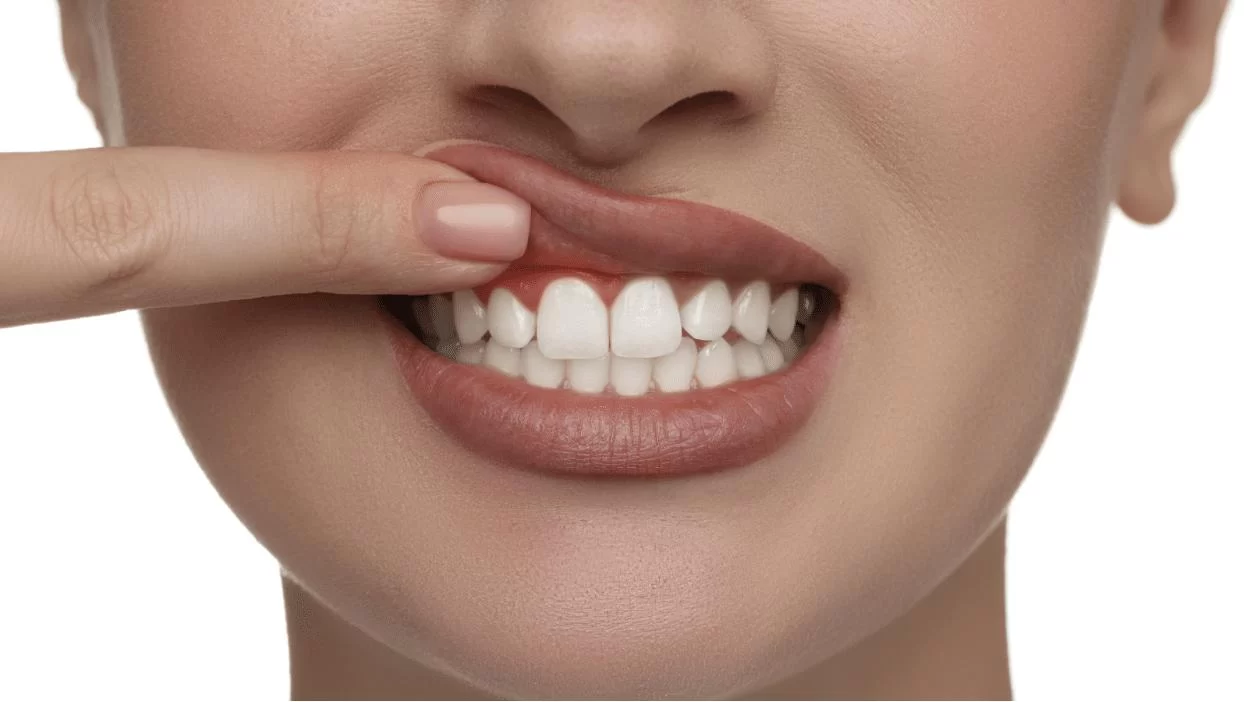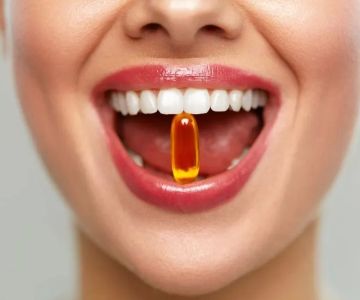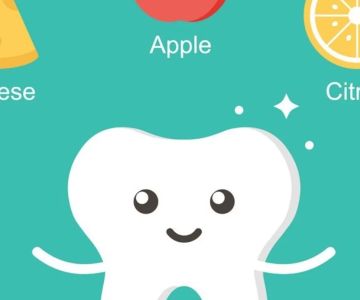
Combat Plaque Naturally: How Diet Reduces Plaque Buildup
Plaque, that sticky film that constantly forms on our teeth, is a major contributor to various oral health issues, from tooth decay to gum disease. In the United States, dental problems related to plaque buildup are widespread, affecting millions of Americans and leading to costly dental procedures and discomfort. While regular brushing and flossing are vital, many are unaware of how significantly diet influences plaque formation. The foods and drinks we consume play a crucial role in creating an environment that either encourages or inhibits bacterial growth in our mouths. According to the National Institute of Dental and Craniofacial Research (NIDCR), diet is a significant modifiable risk factor for oral diseases. Diets high in sugar and refined carbohydrates create a perfect breeding ground for plaque, feeding harmful bacteria that produce acids, which, in turn, attack tooth enamel. Conversely, incorporating a variety of nutrient-rich foods can create an oral environment that is less conducive to plaque formation and promotes healthy gums and teeth. Understanding the connection between diet and plaque buildup is vital for proactive oral health care. This means making informed choices about the food we consume, and understanding how these choices can lead to the betterment or detriment of our teeth and gums. Furthermore, there is often a general lack of awareness about how seemingly small changes to diet can result in significant improvements in oral health. Many people do not understand how to make informed decisions about their diet, and how to choose foods that support overall oral health. At Dentistry Toothtruth, we are dedicated to educating and empowering individuals to take control of their oral health through dietary choices. This article explores the relationship between diet and plaque buildup, providing actionable strategies for reducing plaque formation through smart dietary choices. We will delve into specific foods to include and avoid, offering a practical guide for incorporating these dietary changes into your daily routines to help you enjoy better oral health and a brighter smile.
The Role of Plaque Formation in Oral Health
Before diving into the dietary strategies for plaque reduction, it’s crucial to understand exactly what plaque is and why it is a major concern for oral health. Plaque is a sticky, colorless film that constantly forms on the teeth and gums. It is primarily composed of bacteria, food particles, and saliva. While some bacteria in the mouth are harmless, others can be quite harmful and contribute to dental problems. When plaque is not removed properly, it hardens into tartar, which is a much more tenacious substance that cannot be removed through brushing or flossing alone. Tartar provides a rough surface for more plaque to adhere to, making it harder to keep your teeth clean. The bacteria in plaque produce acids when they come into contact with sugars and carbohydrates in the food we eat. These acids attack the enamel, which is the hard outer layer of the teeth, causing it to erode over time. This process is the primary cause of tooth decay (cavities). As the enamel weakens, the more vulnerable inner layers of the tooth become exposed, causing pain and sensitivity. The buildup of plaque along the gum line leads to inflammation and irritation of the gums, causing gingivitis. If left untreated, gingivitis can progress to periodontal disease, a more severe form of gum disease that can cause damage to the gum tissue, tooth loss, and other significant oral health issues. Additionally, oral health problems linked to plaque buildup can affect overall health, contributing to conditions such as heart disease, diabetes, and respiratory problems. The connection between oral health and overall well being is important to keep in mind when thinking about your health. Therefore, understanding plaque formation and its impacts highlights the need for effective prevention strategies, which include not only proper brushing and flossing but also careful consideration of the foods we eat. By understanding how plaque affects your overall health, you can better choose strategies for prevention, which includes both home care, and dietary changes.
The Impact of Sugary Foods and Drinks on Plaque Buildup
The consumption of sugary foods and drinks has a profound impact on plaque buildup and overall oral health. Understanding this connection is vital for making informed dietary choices that promote a healthier mouth. Sugars are a primary food source for harmful bacteria in plaque. When you eat sugary foods or drink sugary beverages, these bacteria metabolize the sugars, producing acids as a byproduct. These acids are the primary culprits in the erosion of tooth enamel, the hard outer layer of the teeth. The more frequently you consume sugary foods or drinks, the more time the bacteria have to produce these acids, increasing the risk of tooth decay and plaque formation. Foods that are particularly problematic include hard candies, chewing gum, and baked goods that are high in sugar content. These foods can remain in the mouth for longer periods, providing a constant source of sugar for bacteria to feed on, therefore exacerbating plaque. Sugary drinks, such as sodas, juices, and energy drinks, are also very detrimental to oral health. These drinks often have a high concentration of sugar, and the acidic nature of these beverages further contributes to enamel erosion. The regular consumption of these drinks has been directly linked to tooth decay and increased plaque buildup, especially when they are consumed frequently throughout the day. It's also important to consider hidden sugars in seemingly healthy foods, like flavored yogurts, granola bars, and processed snacks. These foods can contain high amounts of added sugar that contribute to plaque formation, despite being perceived as healthy options. By reducing the intake of these types of sugary snacks and drinks, you are significantly helping to reduce the risk of tooth decay. This also helps decrease plaque formation. Additionally, consider what kinds of drinks you are choosing, and make sure that you are choosing water over sugary beverages whenever possible. Making better dietary choices is a vital step in preventing plaque buildup and promoting better oral health. Being more mindful about what you eat and drink will benefit both your dental health, and your general health.
The Benefits of Fiber-Rich Foods in Plaque Reduction
In stark contrast to sugary and processed foods, fiber-rich foods play a crucial role in promoting oral health and reducing plaque buildup. Dietary fiber, found in fruits, vegetables, whole grains, and legumes, offers numerous benefits that contribute to a cleaner and healthier mouth. One of the primary benefits of fiber-rich foods is their natural ability to clean teeth. When you chew on foods such as apples, carrots, and celery, the fibrous texture acts as a natural toothbrush, helping to scrub away plaque and food particles from the tooth surfaces. This type of natural cleaning is not only effective in preventing plaque formation but also helps stimulate saliva production. Saliva is an essential component of oral health, as it helps to neutralize acids, wash away food particles, and re-mineralize teeth. It also helps to prevent bacterial overgrowth in the mouth. Therefore, increased saliva production from eating fibrous foods enhances the overall cleaning process in the mouth. Additionally, fiber-rich foods are often lower in sugar and refined carbohydrates, which are the primary culprits in plaque formation. This helps to make them a better dietary choice for overall oral health. Whole grains, such as brown rice, oats, and whole wheat bread, are also high in fiber and provide essential nutrients that support healthy gums and teeth. These complex carbohydrates are digested slowly, causing a slower release of sugars into the bloodstream and reducing the risk of enamel damage. Legumes, such as beans, lentils, and peas, are an excellent source of fiber and protein, contributing to overall health and helping to balance blood sugar levels. These also provide key nutrients that support healthy teeth and gums. Moreover, fiber-rich foods contribute to satiety, helping you feel full for longer periods and reducing the temptation to snack on sugary or processed foods. This factor alone can be beneficial in reducing plaque formation, as it reduces the time and opportunity for harmful bacteria to feast on sugars and produce tooth-decaying acids. By incorporating a wide variety of high fiber foods into your diet, you're actively contributing to plaque reduction and promoting overall oral health. The benefits of a high fiber diet include not only improved oral health but also improved general health and wellbeing, making this a worthwhile consideration when creating your diet plan.
The Power of Hydration and Water for Oral Health
While often overlooked, proper hydration is a simple yet powerful strategy for reducing plaque buildup and maintaining oral health. Water, in particular, plays a vital role in creating an oral environment that is less conducive to bacterial growth. One of the primary benefits of drinking water is its ability to wash away food particles and bacteria from the mouth. After eating, food particles can get trapped between your teeth and on the surfaces of your tongue and gums. Rinsing with water helps to dislodge these particles before they have the opportunity to contribute to plaque formation. Unlike sugary beverages that fuel bacterial growth, water is a neutral liquid that doesn't contribute to plaque buildup. Replacing sugary sodas, juices, and sweetened drinks with water can greatly reduce your risk of tooth decay and plaque formation. This makes water an ideal choice for proper hydration and oral health. Moreover, water is an essential component of saliva. When you are dehydrated, your body produces less saliva, which can lead to a condition known as dry mouth. Saliva is crucial for oral health, as it contains enzymes and minerals that help to neutralize acids, wash away food particles, and remineralize teeth. When your mouth is dry, it’s not able to perform these essential functions. Drinking adequate amounts of water throughout the day helps to ensure sufficient saliva production, which provides natural protection against plaque. Water can also help to dilute acids in the mouth. This can help reduce the risk of enamel erosion from the acids produced by plaque bacteria. In addition to preventing plaque buildup, staying hydrated can also help reduce the severity of bad breath, often caused by bacterial overgrowth in the mouth. A mouth that is properly hydrated is better equipped to fight bacterial growth, and therefore has less of a risk of developing bad breath. Furthermore, drinking water after meals can serve as a simple and effective way to rinse your mouth and reduce plaque accumulation, especially when brushing isn't an option. Making water the primary beverage of choice throughout the day is one of the easiest and most effective ways to reduce plaque and contribute to overall oral and general well-being.
Foods and Nutrients That Promote Strong Teeth and Gums
While avoiding certain foods and beverages is crucial for plaque reduction, incorporating foods that actively promote strong teeth and gums is equally important. A diet rich in essential nutrients is essential for both oral and general health and can help create an environment that is less susceptible to plaque buildup and decay. Calcium is an essential mineral for building and maintaining strong teeth and bones. Dairy products such as milk, cheese, and yogurt are excellent sources of calcium and also contain other beneficial nutrients like phosphorus and vitamin D, which help with calcium absorption. These options are beneficial for improving both oral and general health. For those who are dairy-free, dark leafy greens, fortified plant-based milks, and tofu can provide good sources of calcium as well. Phosphorus is another essential mineral for building strong teeth and bones and is found in foods such as meat, fish, eggs, and nuts. This mineral works in tandem with calcium and vitamin D to strengthen the bones and teeth. Vitamin D is crucial for proper calcium absorption, and can be found in fatty fish, egg yolks, fortified dairy products, and through exposure to sunlight. Adequate Vitamin D intake ensures that the calcium you consume is being used effectively by your body. Vitamin C is another powerful antioxidant that is essential for the maintenance of healthy gums and tissues. A deficiency in Vitamin C can lead to swollen and bleeding gums, which is often an early sign of gum disease. Foods that are high in Vitamin C include citrus fruits, berries, bell peppers, and spinach. Vitamin A is also crucial for proper oral health and is essential for the maintenance of mucous membranes in the mouth. These help protect gums and tissues. Foods high in Vitamin A include carrots, sweet potatoes, kale, and spinach. Green tea is a great source of antioxidants, which can help reduce inflammation and fight bacterial overgrowth. This is also a great alternative to sugary beverages. Finally, it is always important to stay properly hydrated to ensure proper saliva production. In addition, consider all your vitamin and mineral intake to make sure you are getting all the essential components you need for optimal health. Consuming a balanced diet, rich in fruits, vegetables, lean proteins, whole grains, and healthy fats, is essential for creating the optimal environment for your teeth and gums, and ensuring your overall health and wellbeing. Prioritizing these nutritious foods can significantly reduce plaque buildup and promote long-term oral health.
Practical Steps for Incorporating Diet Changes and Long-Term Maintenance
Making dietary changes to reduce plaque buildup is a continuous effort that requires commitment and consistency. Incorporating these changes into your daily routine can lead to lasting improvements in your oral health. Start by gradually reducing sugary foods and drinks, such as soda, candy, and processed snacks. Replace these options with healthier choices, such as fruits, vegetables, nuts, and seeds. Making these types of replacements can help make it easier to make healthier choices in the long run. Additionally, when planning your meals, prioritize whole foods over processed foods, and try to include a wide variety of fruits, vegetables, lean proteins, and whole grains. Plan your weekly meals to ensure that you’re incorporating plenty of fiber, vitamins, and minerals into your diet. When you're feeling snacky, reach for healthy choices like carrots, apples, or a handful of nuts rather than sugary options. Be mindful of portion sizes, even with healthy options, and try not to overeat, as this can lead to other issues. When reading food labels, carefully inspect the ingredients for hidden sugars. Many processed foods contain hidden sugars that you may not be aware of. Try to choose foods with lower amounts of added sugars. Always make sure to stay hydrated by drinking plenty of water throughout the day, and make water your primary beverage of choice. Carry a water bottle with you to make it easier to drink water throughout the day. Be sure to brush your teeth and floss regularly, which are still essential to preventing plaque buildup, even while maintaining a healthy diet. In addition to proper brushing and flossing, regular dental visits are an important component of keeping a healthy mouth. These visits will include proper cleaning, exams, and education that is tailored to your specific needs. Stay vigilant in maintaining your dietary habits and oral hygiene practices. Keep track of your progress and adjust your strategies as needed. These changes can significantly reduce plaque buildup and contribute to overall oral and general health and well-being. By maintaining this level of commitment, you will be well on your way to a healthier and happier smile. At Dentistry Toothtruth, we are dedicated to providing comprehensive resources to support your oral health journey. We encourage you to explore our other resources and contact us to learn more.






 Westgate Dental Arts
Westgate Dental Arts Coventry Family Dental
Coventry Family Dental Familia Dental
Familia Dental Dr. Daniel S. Fife, DDS
Dr. Daniel S. Fife, DDS Dentistry At Suburban Square: Michael I. Wollock, DMD
Dentistry At Suburban Square: Michael I. Wollock, DMD Comfort Care Dental
Comfort Care Dental The Importance of Oral Health Education During Pregnancy for a Healthy Pregnancy
The Importance of Oral Health Education During Pregnancy for a Healthy Pregnancy Why Skipping Dental Checkups Can Lead to Bigger Oral Health Problems
Why Skipping Dental Checkups Can Lead to Bigger Oral Health Problems Best Tips for Brushing Your Teeth Properly for Healthy Gums: Essential Techniques for Oral Health
Best Tips for Brushing Your Teeth Properly for Healthy Gums: Essential Techniques for Oral Health Advantages of Porcelain Dental Restorations
Advantages of Porcelain Dental Restorations How Can Diabetes Cause Tooth and Gum Problems? Preventing and Managing Oral Health Issues
How Can Diabetes Cause Tooth and Gum Problems? Preventing and Managing Oral Health Issues Healthy Habits for Promoting Good Oral Health and Hygiene: Tips for a Healthy Smile
Healthy Habits for Promoting Good Oral Health and Hygiene: Tips for a Healthy Smile